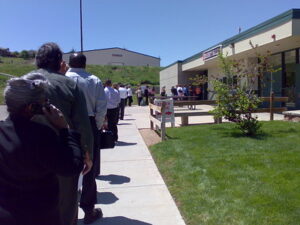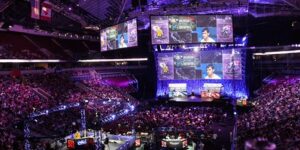In the last few pieces, I have written about the exceptional challenges that esports players and their teams face. I have already written about the spectacular failure of TSM’s sponsorship deal, which preceded the team’s exit from at least two esports leagues.
While LoL is only one of a number of esports options, realistically, esports leagues have yet to hit upon a reliable franchising model that works in terms of sustainable revenue generation.
In Los Angeles, FaZe Holdings owns a range of esports teams and operates under the name FaZe Clan. Following in the footsteps of professional sports teams like the Green Bay Packers, the Edmonton Oilers, and the Toronto Maple Leafs, FaZe Holdings attempted to fund its operations by broadening its ownership base. When FaZe Holdings first announced its intention to go public, it had an estimated $1B valuation. That’s an interesting approach because as a publicly traded company, FaZe Holdings must disclose its financial data. In its most recent filing, the company posted a quarterly net loss of $7.2M. Over a year, that would be $28.8M.
The major barrier to the company’s plan was the minimum amount of cash it needed to have on hand to close a merger with the B. Riley Principal 150 Merger Corporation. That would enable FaZe to list itself on the NASDAQ, using a Special Purpose Acquisition Corporation (SPAC). A SPAC approach would allow the company to avoid a potentially disastrous Initial Public Offering (IPO). The cash requirement was waived in mid-2023, and the company was listed on the NASDAQ in July 2022 with an opening share price of about $10. On its first day of trading, FAZE lost 25% of its value; however, by early September, the company’s share price had risen to $17.43 per share.
Esports teams don’t make good investment material
The gains were short-lived. Within months, the stock price (FAZE:NASDAQ) had tanked amid news of mounting operational losses. By October, the company sold itself in an all-stock takeover by Jerry Jones’ Game Square. (Jerry Jones also owns the NFL’s Dallas Cowboys.) It wasn’t a good move. As of the close of trading on December 18, FaZe Holdings was trading at just $0.19 per share amid threats by the exchange to de-list the stock.
On its website, FaZe Clan claims to be “the most popular esports and entertainment organization in the world.” Regardless of the merit of this statement, make no mistake about it: the future of FaZe Holding’s esports teams are in the balance. At stake are the company’s Counter-Strike 2, Call of Duty, PUBG, PUBG Mobile, Rainbow 6 Siege, EA Sports FC, Fortnite, Valorant, Halo Infinite, Rocket League, and Super Smash Bros. Ultimate teams. After all, nothing screams popularity like being de-listed on a stock exchange.
Tomorrow, I will look at additional esports failures that inform the condition of the industry.
Photo Credit: Damian Gadal, via Flickr











